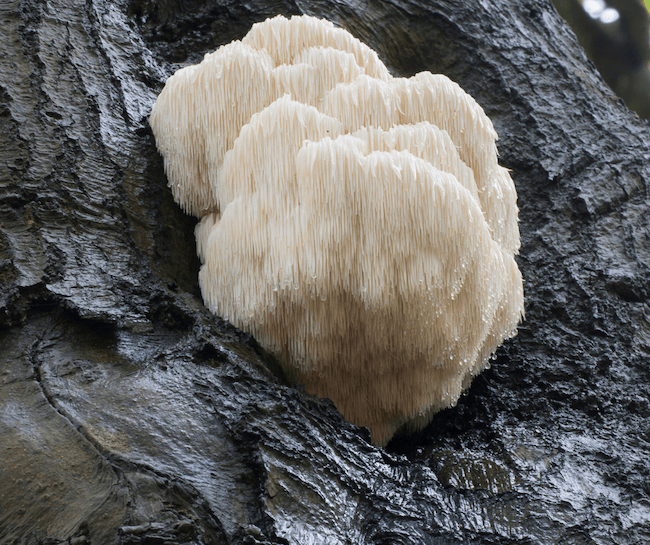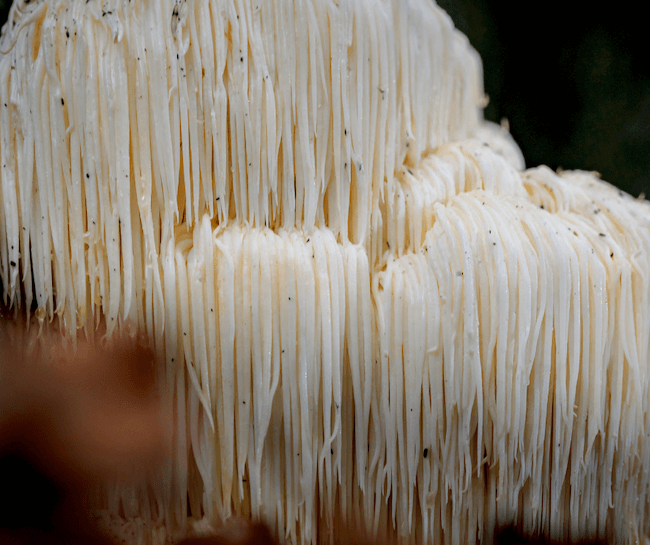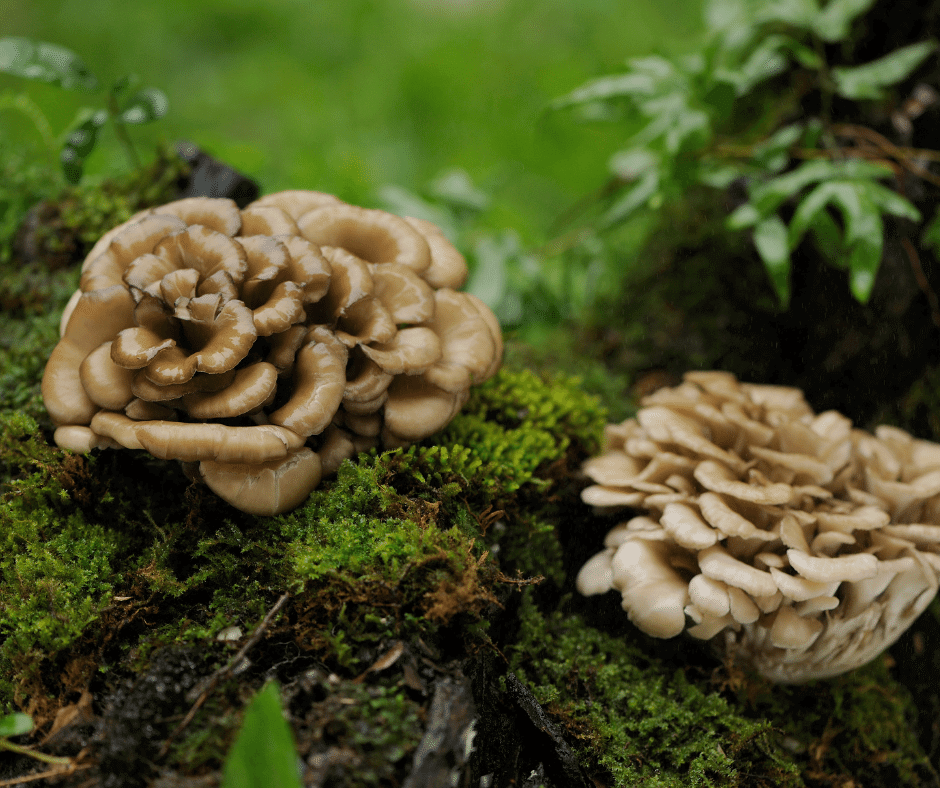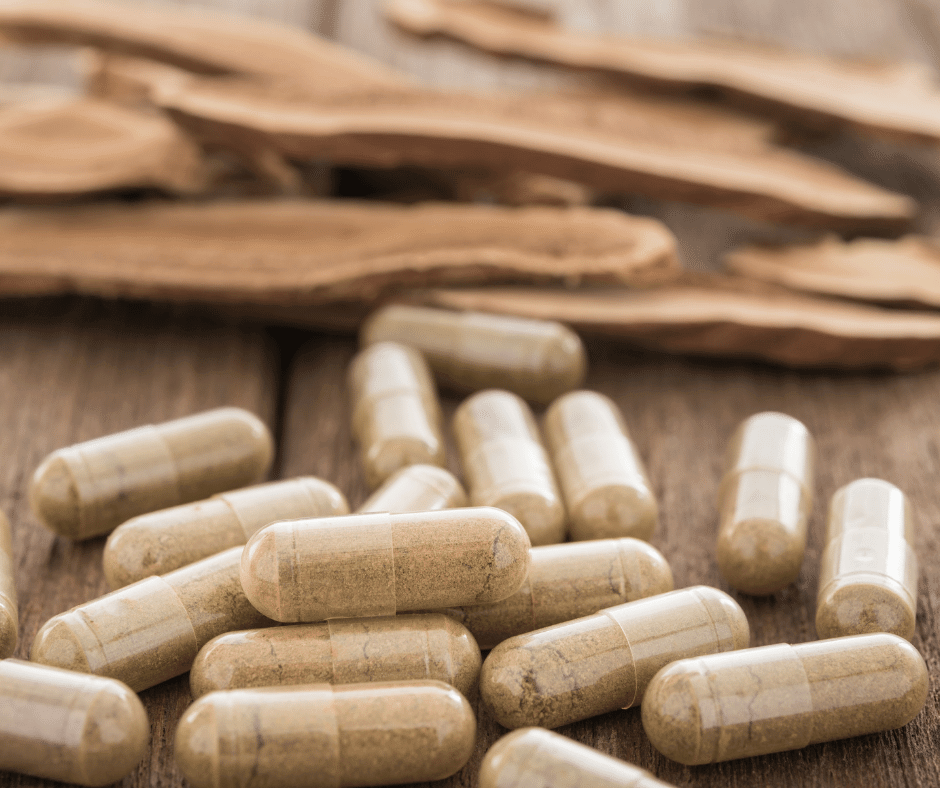Lion’s mane: it’s a mushroom with a centuries-long good reputation for its major brain, gut, and antioxidant perks. While modern research is still catching up, science shows that supplementing this ‘shroom is promising; side effects are limited. Let’s dive into specifics right here.
What is lion’s mane?
Lion’s mane, also known as Yamabushitake or Hericium erinaceus, is a nutrient-packed edible fungus that grows in the Northern Hemisphere. Mushroom enthusiasts and mycologists alike will find it in places in North America, Europe, and parts of Asia, where you’ll probably find fruiting bodies popping up in the late summer and the fall.
Less appetizingly, lion’s mane is part of what’s called the tooth fungus family, and it’s known for its dendrite-like spines that grow in the shape of what looks like a beard or a (wait for it) lion’s mane. It’s edible, harvestable (except in parts of Europe, where it’s endangered in the wild), and tastes a bit like crab meat.
Despite the previous paragraph, don't let us talk you out of consuming lion's mane mushrooms altogether -- we've got some delicious recipes for incorporating the mushroom into your diet!

What are the most common side effects of lion’s mane?
We’ll start with the good news: there’s very, very little evidence that lion’s mane would cause potential side effects. Here’s what we could find:
- In animal trials, there appear to be no side effects of taking lion’s mane consistently.
- Note: many of these trials went on for less than a year. Long-term lion’s mane studies have yet to be published.
- In human trials, there may be reason to proceed with caution if you already have troubles with asthma:
- Researchers noted in this study a single reported instance of a man in his 60s being admitted to the hospital with severe respiratory failure after dedicated lion’s mane supplementation for about four months. He recovered with the use of steroids. The study concluded that lion’s mane may increase the risk of asthma-like symptoms.
Bottom line: In moderate doses, evidence points to the fact that it is safe to eat. And even when administered in large doses in animal trials, there appeared to be no adverse effects. Still, since we’re still learning, if you have asthma or trouble breathing, consult with your doctor.
Possible interactions from lion’s mane mushrooms
It appears that lion’s mane may interact with the following medications:
- Anticoagulants: These medications slow blood clotting in the body; lion’s mane does this, as well. That means that taking lion’s mane in tandem with anticoagulants or antiplatelet drugs may increase the risk of bruising and bleeding.
- Anti-diabetic drugs: Since lion’s mane may lower blood sugar levels, taking it in tandem with anti-diabetes drugs may cause your blood sugar levels to drop too low. You should monitor your blood sugar levels throughout the day or consider skipping lion’s mane supplementation altogether in this case.
- In general, it’s also recommended that pregnant women avoid supplementation since research is limited.

Lion’s mane mushroom dosage
As always, we’ll begin with the caveat: human trials for lion’s mane supplementation have been small so far, so we have little research to go on. (However, as we mentioned, high doses in animal trials have so far produced no side effects.)
Some studies used the following dosages:
- 750 milligrams per day for 16 weeks
- 3 grams per day in tablet form for 16 weeks
- 5 grams per day of the fruiting body in soup or broth
- Additional sources recommend 500-600 milligrams 3 times per day for ongoing maintenance.
To reduce potential side effects, start slow: Ease into supplementation. If your goal is long-term health, don’t dive in head-first. Take small amounts of lion’s mane – of, even better, work the fruiting body into dishes you cook throughout the week – and catalog how you feel.
It’s important to follow recommendations on the label of your supplement – and consult with your doctor beforehand. Check out this article for more on how to dose lion's mane supplements.
How do most people take lion’s mane mushrooms?
Lion’s mane supplements come in several forms:
- Capsules or tablets
- Liquid tinctures
- Powder
- Or even grind-like “mushroom coffee” or tea
In many of the existing studies out there, lion’s mane was administered in a tincture-like consistency that had been extracted in ethanol or hot water solutions to isolate certain water-soluble or non-water soluble compounds for their health benefits. Capsules were also given in human trials.
Note: Since you’re here, you’re already ahead of the game. But just in case this doesn’t go without saying: do your research. Many mushroom powder supplements aren’t well isolated from their growth environments, which means a lot of the time (and especially in mycelium-based supplements) they can be mostly starch. Make sure you’re getting the most isolated form you can find.

What are the benefits of lion’s mushrooms?
Lion’s mane mushrooms have the potential to go beyond a superfood. Evidence shows that certain compounds in this fungus can “significantly” help both the brain and the body.
- Memory support: Especially in the case of Alzheimer’s patients. Studies show that lion’s mane can stimulate brain cell growth, block harmful plaque buildup in the brain, and improve cognitive function and memory during supplementation.
- Mood support: Research also suggests that depressed brains may benefit from lion’s mane. Certain nootropic compounds in the fungus can relieve depression-related inflammation, provide stress-relief, and stimulate nerve growth in the hippocampus, a part of the brain that helps regulate mood (among many other things). One small study even suggested it might help regulate the moods of women going through menopause.
- Protects against ulcer development: Lion’s mane is hard at work when it gets to your belly, science says. Several studies suggest it can inhibit the growth of bacteria that causes ulcers and can reduce inflammation.
- May help fight cancer: Lion’s mane’s potential in this area of research is astounding. Aside from being a powerful antioxidant, it can cause cancer cells to die at a faster rate, slow down cancer’s characteristic harmful cell regeneration, and slow its spread in the meantime.
- Reduces the risks of heart disease: Lion’s mane is an anticoagulant, which means it helps thin the blood to prevent clotting. It can also reduce the oxidation of cholesterol, which causes hard arteries, and improve fat metabolism.
- Eases diabetes symptoms: Some studies show that lion’s mane can help reduce blood sugar and ease diabetes-associated nerve pain in the hands and feet.
Looking for more on the benefits of lion's mane? Check out this article.
Want to learn more about this mushroom and others? Keep exploring!






.png)
